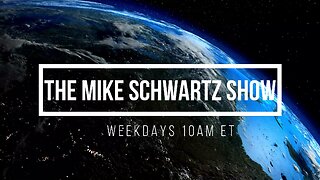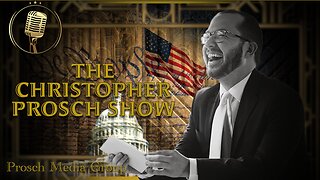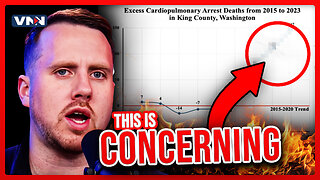Premium Only Content

Timaeus Plato
Don't forget to follow my channel for more content.
This video is perfect for putting on when going to bed, driving or while doing things around the house!
By: Plato ~ ΠΛΆΤΩΝ
Translated By: Benjamin Jowett
Full Length Audiobook Video
Timaeus Greek Τίμαιος Timaios, is one of Plato's dialogues, mostly in the form of a long monologue given by the title character Timaeus of Locri, written c. 360 BC. The work puts forward speculation on the nature of the physical world and human beings and is followed by the dialogue Critias.
Participants in the dialogue include Socrates, Timaeus, Hermocrates, and Critias. Some scholars believe that it is not the Critias of the Thirty Tyrants who is appearing in this dialogue, but his grandfather, who is also named Critias. It has been suggested that Timaeus influenced a book about Pythagoras, written by Philolaus.
The dialogue takes place the day after Socrates described his ideal state. In Plato's works such a discussion occurs in the Republic. Socrates feels that his description of the ideal state wasn't sufficient for the purposes of entertainment and that "I would be glad to hear some account of it engaging in transactions with other states".
Hermocrates wishes to oblige Socrates and mentions that Critias knows just the account to do so. Critias proceeds to tell the story of Solon's journey to Egypt where he hears the story of Atlantis, and how Athens used to be an ideal state that subsequently waged war against Atlantis. Critias believes that he is getting ahead of himself, and mentions that Timaeus will tell part of the account from the origin of the universe to man.
Critias also cites the Egyptian priest in Sais about long term factors on the fate of mankind:
"There have been, and will be again, many destructions of mankind arising out of many causes; the greatest have been brought about by the agencies of fire and water, and other lesser ones by innumerable other causes. There is a story that even you [Greeks] have preserved, that once upon a time, Phaethon, the son of Helios, having yoked the steeds in his father's chariot, because he was not able to drive them in the path of his father, burnt up all that was upon the earth, and was himself destroyed by a thunderbolt. Now this has the form of a myth, but really signifies a declination of the bodies moving in the heavens around the earth, and a great conflagration of things upon the earth, which recurs after long intervals.
Summary By: Wikipedia
-
 LIVE
LIVE
Steven Crowder
2 hours ago🔴 BREAKING: Russia Launches ICBM for First Time in History - What Happens Next?
33,170 watching -
 LIVE
LIVE
LFA TV
13 hours agoTHE FIGHT IN ONLY BEGINNING! | LIVE FROM AMERICA 11.21.24 11am EST
4,803 watching -
 1:18:10
1:18:10
Graham Allen
4 hours agoPutin Vows Peace With Trump But WAR Under Biden!! + 400,000 Kids Are MISSING?!
74.4K115 -
 2:11:07
2:11:07
Matt Kohrs
11 hours agoMSTR Squeezes Higher, Bitcoin To $100k & Nvidia Post Earnings || The MK Show
30.3K1 -
 42:07
42:07
BonginoReport
5 hours agoNikki Haley's Hatred of Tulsi Gabbard Just Made Me a Bigger Fan (Ep.90) - 11/21/24
78.2K178 -
 28:41
28:41
Professor Nez
10 hours ago🚨BLOOD on their HANDS! The Man Biden & Kamala Flew In Finally Faces JUSTICE for Laken Riley
37.6K22 -
 1:06:27
1:06:27
2 MIKES LIVE
3 hours agoThe Mike Schwartz Show 11-21-2024
37.1K -
 15:07
15:07
PMG
12 hours ago $0.69 earned"President Trump's Cabinet is Amazing!"
44.9K -
 LIVE
LIVE
Vigilant News Network
15 hours agoHeavily-Vaxxed County Faces Grim Reality | The Daily Dose
1,016 watching -
 1:22:22
1:22:22
Game On!
15 hours ago $11.32 earnedRussell Wilson MVP? TNF Steelers vs Browns Game of the Year!
73.7K